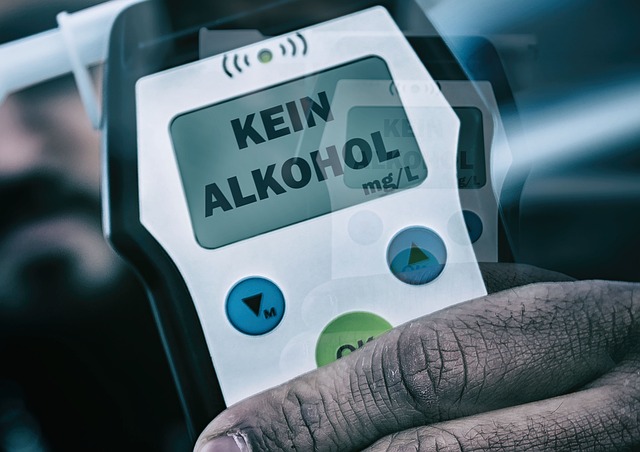Mental health significantly impacts driving safety, a critical yet often overlooked aspect of college campus DUI prevention. Conditions like depression and anxiety can impair judgment and reaction times, increasing accident risks. Campuses adopt comprehensive strategies combining peer education, technology, and stringent policies to deter impaired driving. Recognizing subtle signs of distress in drivers is vital through training students and security personnel. Fostering mental well-being by addressing stress and anxiety empowers young adults to make safer decisions, reducing impaired driving incidents on and off campus, ultimately making roads safer for all.
Mental health plays a critical role in driving safety, especially on college campuses where young adults navigate stress and change. Understanding the connection between mental well-being and driving behavior is essential to fostering safer road environments. This article explores key areas such as recognizing the link between mental health and driving risks, implementing effective DUI prevention strategies on college campuses, identifying signs of driver distress, and promoting mental health initiatives for long-term safety. By addressing these aspects, we aim to reduce incidents and create a more secure atmosphere for all drivers.
- Understanding the Link Between Mental Health and Driving Safety
- College Campus DUI Prevention Strategies
- Recognizing Signs of Distress in Drivers
- Promoting Mental Well-being for Safer Roads
Understanding the Link Between Mental Health and Driving Safety

Mental health plays a significant role in driving safety, an aspect often overlooked in discussions on road security. The connection between mental well-being and responsible driving is intricate; various mental health conditions can impact a person’s ability to operate a vehicle safely. For instance, depression or anxiety disorders might cause distractions, slowed reaction times, and impaired judgment, increasing the risk of accidents. Similarly, conditions like schizophrenia or bipolar disorder can lead to disorientation, hallucinations, or extreme mood swings, further complicating driving tasks.
On college campuses, DUI (drunk driving or driving under the influence) prevention initiatives must acknowledge this mental health dimension. Given the high prevalence of mental health issues among young adults, fostering open conversations and providing support services can significantly contribute to safer driving environments. Educating students about the link between mental health and driving and promoting responsible decision-making are key strategies in mitigating risks on campus and beyond.
College Campus DUI Prevention Strategies

Many college campuses are implementing innovative strategies to combat DUI (drunk driving under influence) among students, given the heightened risks associated with young adults and their tendency for risky behavior. These initiatives focus on raising awareness, promoting responsible drinking, and providing safe alternatives to prevent tragic accidents. One effective approach is educating peers through peer-to-peer counseling and hosting interactive workshops that highlight the consequences of impaired driving.
Furthermore, campuses are leveraging technology by introducing apps that offer designated driver services or provide real-time transportation options, making it easier for students to make responsible choices. Stringent policies, including stricter penalties for DUI offenses and increased campus police presence during social events, also serve as deterrents. By combining education, support systems, and practical solutions, college campuses are actively working towards reducing DUI incidents and ensuring the safety of their students while driving.
Recognizing Signs of Distress in Drivers

Recognizing signs of distress in drivers is a crucial aspect of college campus DUI prevention. While driving, individuals may exhibit behaviors indicative of mental health struggles, such as erratic steering, rapid lane changes, or slowed reactions. These symptoms could be linked to conditions like anxiety, depression, or even substance abuse, which can impair judgment and motor skills.
Students and campus security personnel should be trained to identify these subtle cues. Paying attention to a driver’s overall demeanor, including their facial expressions, body language, and eye contact, can provide valuable insights. If concerns arise, it is essential to prioritize safety and encourage the individual to seek professional help, potentially preventing tragic outcomes like DUI incidents on campus.
Promoting Mental Well-being for Safer Roads

Promoting mental well-being is a key strategy in fostering safer roads, especially on college campuses where DUI (drunk driving under influence) prevention is a significant concern. Young adults, navigating their academic and personal lives, are susceptible to increased stress and anxiety levels, which can negatively impact their judgment and decision-making abilities while driving.
Campus communities play a vital role in encouraging open conversations about mental health, providing accessible support systems, and implementing educational programs that teach stress management techniques, resilience building, and responsible drinking practices. By prioritizing mental well-being, colleges can contribute to reducing risky behaviors, such as impaired driving, among their students and ultimately making roads safer for everyone.
Mental health and driving safety are intrinsically linked, with distress significantly impacting road risks. Implementing strategies like those for College Campus DUI prevention is vital. By recognizing signs of distress in drivers and promoting mental well-being, we can create safer roads. Through education and support, we can ensure that individuals struggling with their mental health can navigate our highways responsibly, fostering a more secure environment for everyone.






